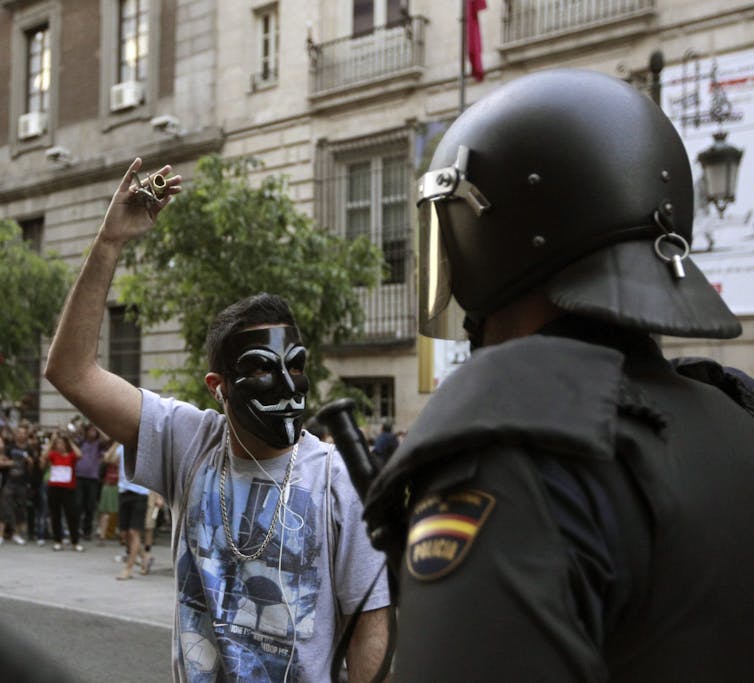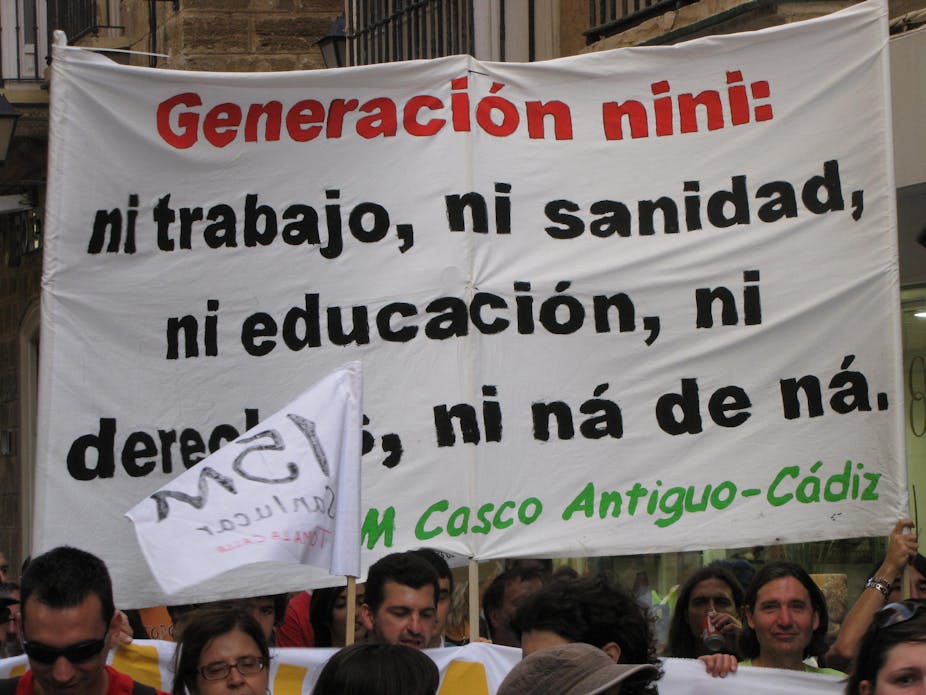This week marked the first anniversary of the 15-M movement, a precursor of Occupy movements worldwide.
15-M again mobilised its supporters for a 4-day long program of street protests culminating in a celebration of the anniversary on Tuesday 15 May.
High numbers of participants in over 80 Spanish cities proved that 15-M is alive and is again attracting people of all ages and backgrounds who came to affirm that they are still outraged, the Seguimos Indignados.
More than just occupation
While the local media concentrates heavily on issues of legality of occupying public spaces, Francisco Jurado, a member of Democracia Real Ya (Real Democracy Now) and one of the organizers of this year’s events in Sevilla, points out that the objective of the 4-day program of commemoration was not to reproduce last year’s weeks-long occupation of main squares in most cities, but rather to focus society’s attention on specific issues that affect it most now: housing, healthcare, education, economy and political representation, with the goal of creating concrete proposals for solutions.
“We are aware that a society in a full state of shock’, says Jurado, referring to the Spanish society in its current economic and political circumstances, "will paralyse if it doesn’t see an alternative”.
15-M can offer an alternative, as the movement that originated as a spontaneous and improvised street protest a year ago has evolved to become a platform where concrete proposals can now be elaborated and action taken. He points out that achievements of the movement by far exceeded the expectations from a year ago, especially in advancing issues in healthcare, education and political representation, international impact of the “Spanish Revolution” and its presence in the media.
A year on
“Now is a good moment to analyse the movement”, says Rafael Rodríguez Prieto, professor of Legal and Political Philosophy at the University Pablo de Olavide in Sevilla, “from the perspective of one year of its existence”.
Looking back at the birth of the movement a year ago, Rodríguez Prieto likens it to a breath of fresh air, overdue and necessary after a long period of time of stagnation and lack of action on the part of the society to remedy the unacceptable economic conditions and flaws in the political system in Spain.
He affirms that giving visibility to these issues is probably the most important legacy of the movement. He points out that 15-M also reinforces initiatives that existed prior to its emergence, both of economic nature such as anti-eviction movement Stop Desahucios or a Sevilla-born political initiative ‘democracia 4.0’.

15-M acts as a catalyst to these ideas and practices that gain strength and visibility from becoming part of a bigger movement.
The reality or the news agenda?
However, these specific economic and political proposals are rarely part of the extensive media coverage of the movement, Rodríguez Prieto observes.
By focusing its attention on street demonstrations and internal tensions, and disregarding the groundwork being done by local, neighborhood-based assemblies in periods of relative calm (during summer holidays or directly after elections), the media are guilty of representing this movement as fragmented, temporary and disorganised.
“The press is only interested in this movement when it can fill the news bulletin”, says Rodríguez Prieto, while Jurado emphacises the power of the internet to not only “correct” the misinformation produced by the media, but even to influence the image presented media by exploiting Twitter’s trending topics that the media cannot and doesn’t ignore. 15-M took everybody by surprise when it emerged last year, but since then its opponents have had plenty of time to prepare a strategy to deal with this year’s anniversary and any future initiatives, says Rodríguez Prieto, just like in a game of chess.
First Spain, then Europe
The current government has thought it through very well and anticipated 15-M moves by prohibiting overnight occupation of Madrid’s Puerta del Sol, infiltrating demonstrations with undercover police (300 in Madrid alone), and considering legal measures that will effectively criminalise some acts of street protest.
Media were prepared as well, with several media outlets conducting public opinion polls prior to the anniversary, to have ready-to-use data to back up their interpretation of the events. But whatever the interpretation, it cannot be denied that 15-M changed the dynamics of political participation in Spain that for the last 30 years has been limited exclusively to political parties. “The movement”, says Jurado, “has united people who vote for different political parties or don’t vote at all, but share common goals and perspectives.”
High participation in last Saturday demonstrations confirmed the relevance of 15-M for the Spanish society but the response has been lukewarm in other European cities, arguable because, as Jurado points out, the situation in northern parts of Europe is not as dire as in Spain, Greece and Portugal.
“We don’t have much to celebrate yet”, warns Rodríguez Prieto in response to framing Tuesday’s event as a celebration. “We need a stronger European mobilization to see real results.”

